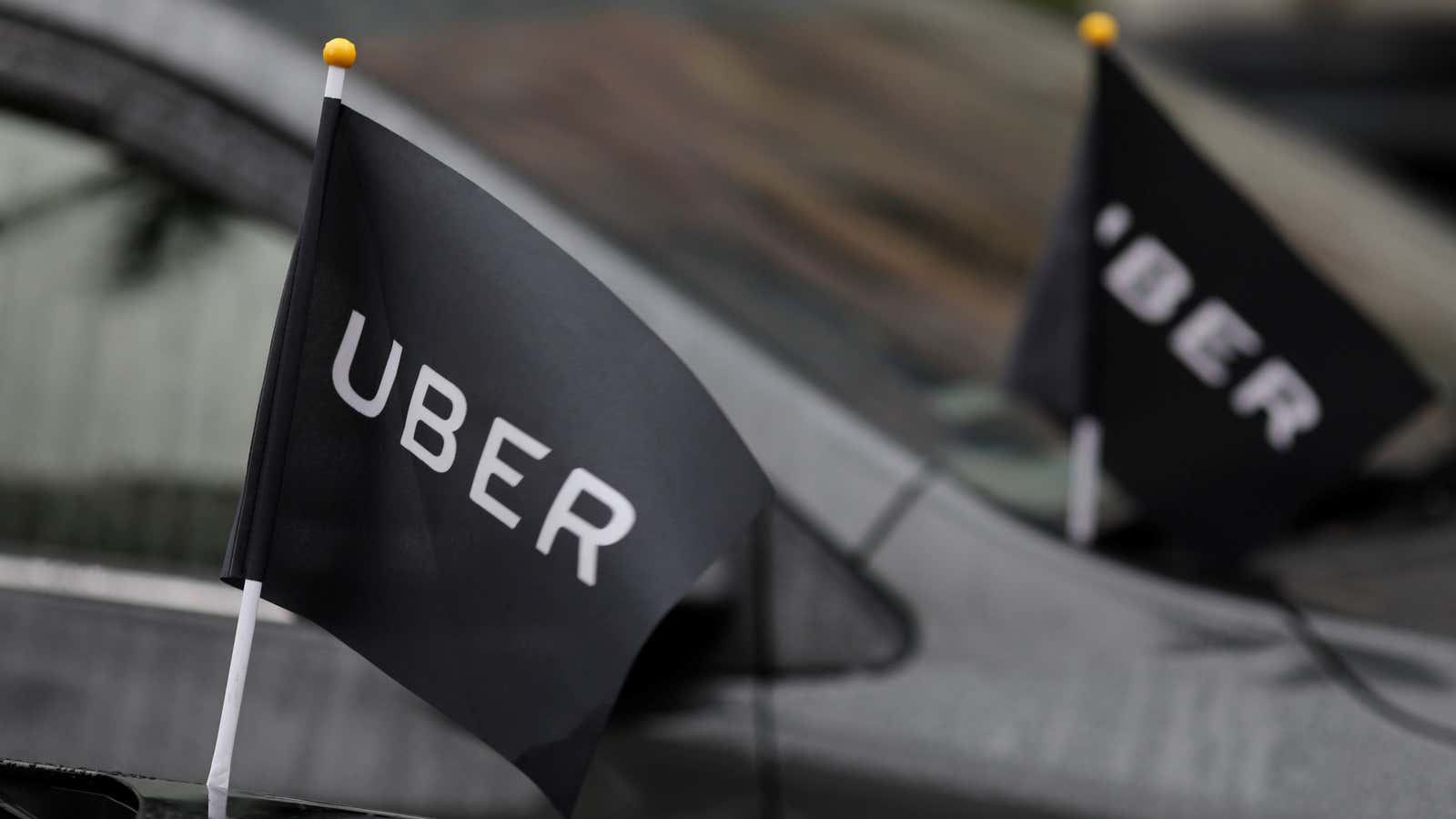Uber, the ride-sharing company battered by accusations of sexual harassment and other misbehavior, is firing 20 employees after an internal investigation into its workplace culture, the New York Times reported (paywall), while hiring a Harvard Business professor to help it mend its ways.
The moves are in response to growing anger with the company that has fueled a #deleteUber campaign and spurred an exodus of top executives.
Uber held a call for employees this afternoon (June 6) to discuss the results of an investigation by law firm Perkins Coie into specific allegations of misconduct at the company. Uber set up an anonymous “integrity” hotline for employees to report complaints as part of the investigation, which ultimately covered 215 claims of misconduct. In addition to the 20 employees who were fired, seven have been warned and more sent to training, a source familiar with the matter told Quartz. Perkins Coie found that no action was needed on 100 of the claims.
Uber has earned a reputation for a coarse and aggressive culture, one where insults and threats are tolerated, and rule-breaking encouraged. The company was rocked by allegations of sexual harassment, and fired a top engineer for covering up similar accusations. Separately, Uber has retained former US attorney general Eric Holder to investigate its workplace culture. The results of that investigation were initially due this week but are now expected for the following week. The Perkins Coie findings will inform the Holder report, the source told Quartz.
Uber announced Monday (June 5) it was hiring Frances Frei, who worked with the company as a consultant, as senior vice president for leadership and strategy. Among her duties: “coaching, supporting and developing a world-class leadership team; and articulating and helping to architect and adapt our cultural philosophy.”
Along with helping mend Uber’s culture, it appears Frei will also be tasked with reforming Uber CEO Travis Kalanick. After he was caught berating an Uber driver on video, Kalanick pledged to change his ways. ”I need leadership help and I intend to get it,” he said in a Feb. 28 blog post.
Frei, who specializes in both helping transform both organizations and leaders, seems to be the right person for the job. Whether she’s empowered to change Uber depends a lot of whether the company is willing to cast out its bad actors and reward its good ones. Cultural change starts at the top, but it doesn’t end there: The company needs to overhaul its systems of hiring, evaluation and promotion to enforce the message that misbehavior won’t be tolerated.
